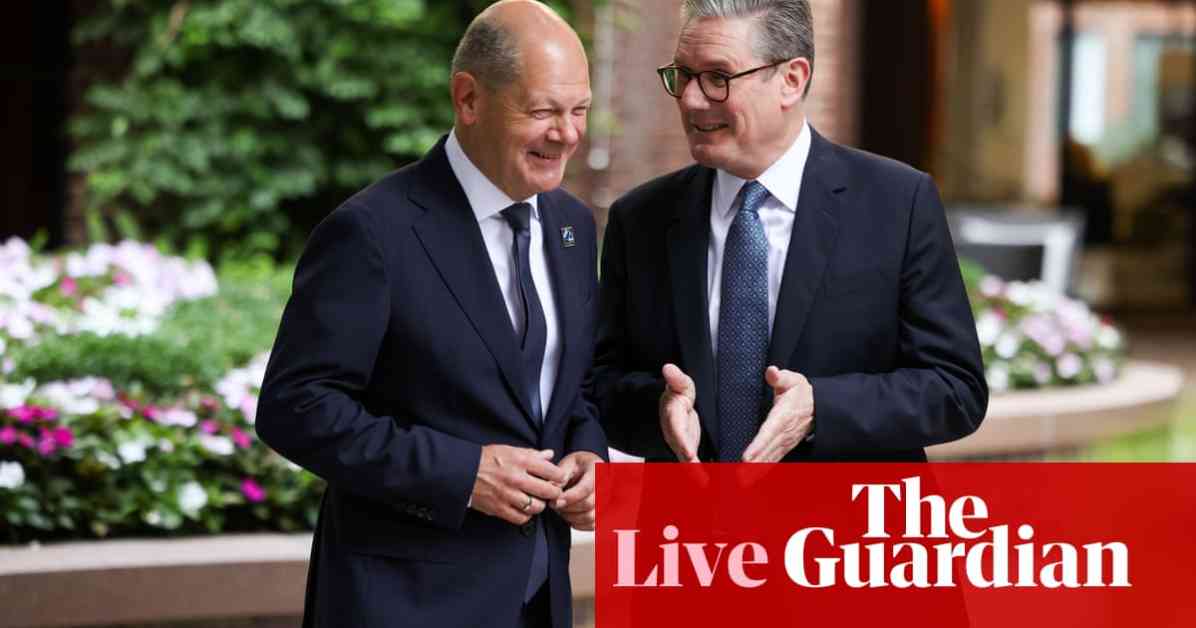Keir Starmer, the British Prime Minister, recently met with German Chancellor Olaf Scholz in Berlin to discuss a potential youth mobility deal between the UK and Germany. This meeting marks an important step in strengthening diplomatic ties between the two nations. Starmer’s visit to Germany comes at a crucial time as both countries seek to enhance cooperation on various fronts, including defense, trade, and international affairs.
Addressing the Vaping Epidemic
In other news, the British Medical Association (BMA) has called for stricter regulations on the sale of vaping products in the UK. The BMA argues that vapes should only be sold from behind the counter, similar to cigarettes, to curb the rising trend of vaping among young people. According to recent data from Action on Smoking and Health (Ash), approximately 5.6 million adults in Britain use vapes, with a significant portion of them being teenagers.
The BMA’s report highlights the potential risks associated with vaping, such as nicotine addiction and exposure to harmful substances like lead. The World Health Organization has also urged governments to take urgent action to protect children from the dangers of e-cigarettes. Labour has pledged to introduce new legislation to regulate the sale and marketing of vaping products, building on the previous government’s efforts to control tobacco and vape consumption.
Starmer’s Diplomatic Visit to Berlin
During his visit to Berlin, Keir Starmer met with German President Frank-Walter Steinmeier at the Bellevue Palace. This historic meeting symbolizes the ongoing efforts to strengthen diplomatic relations between the UK and Germany. Starmer’s visit to the palace, adorned with red, white, and blue flowers, underscores the significance of the discussions that took place between the two leaders.
Following his meeting with President Steinmeier, Starmer proceeded to meet with Chancellor Olaf Scholz at the German chancellery. The two leaders engaged in bilateral talks, focusing on a proposed treaty between the UK and Germany, as well as other pressing issues like the conflict in Ukraine. The warm reception and military honors extended to Starmer during his visit demonstrate the importance of diplomatic relations between the two countries.
Key Developments in UK Politics
In addition to his diplomatic visit to Germany, Keir Starmer has hinted at potential tax increases in the upcoming budget, citing a significant budget deficit inherited from previous Conservative governments. The Prime Minister emphasized the need for tough decisions to address the financial challenges facing the country. Meanwhile, Chancellor Rachel Reeves is set to visit Glasgow for a growth-related tour, highlighting the government’s commitment to supporting economic development in various regions.
Energy firm executives are scheduled to meet with government officials to discuss support for vulnerable households ahead of the winter season. With Ofgem recently raising the price cap on energy bills, there is growing concern about the impact on families struggling to afford heating during the colder months. The government’s decision to withdraw winter fuel payments from certain pensioner households has also raised questions about support for vulnerable populations.
In Scotland, the financial watchdog has raised concerns about overspending by Scottish ministers, leading to potential cuts in non-essential services. The Scottish Fiscal Commission has highlighted the need for better financial planning to avoid budget deficits and ensure sustainable public spending. These developments underscore the importance of fiscal responsibility and prudent financial management in government operations.
In a separate incident, a man is awaiting sentencing for throwing a coffee cup at Reform UK leader Nigel Farage during the general election campaign. The incident reflects the heightened tensions and security risks faced by political figures during public events. The outcome of the case will shed light on the consequences of such actions and the need for respect and civility in political discourse.
As Keir Starmer continues his diplomatic engagements and addresses key issues in UK politics, the government faces numerous challenges in navigating economic, social, and international affairs. The Prime Minister’s commitment to addressing fiscal deficits, supporting economic growth, and strengthening diplomatic ties with international partners reflects a proactive approach to governance. The outcomes of these efforts will shape the future trajectory of the UK and its relations with global partners.












